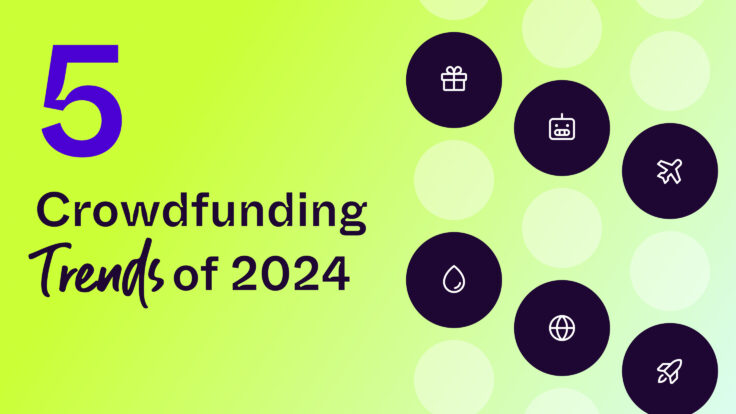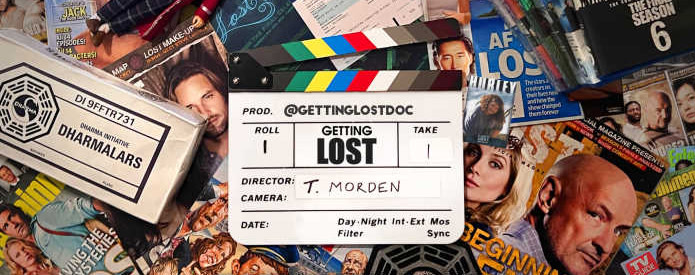COMMON is an umbrella brand geared towards social change, created in January 2011 by three highly prolific visionaries eager to provide a collaborative platform for entrepreneurs. This past year, COMMON Hoops launched on IndieGoGo; a campaign raising to empower the youth community in Alabama with the skills needed to transform salvaged materials into basketball backboards. Subsequently, COMMON Pitch was born; a pitching platform for the start up community to find access to capital investment. This week during Social Media Week in New York, IndieGoGo collaborates with COMMON in two events: our CEO Slava Rubin runs a Skillshare class on crowdfunding and we contribute fundraising support to the 8 entrepreneurs who are involved with COMMON Pitch.
IndieGoGo talks with two of the co-founders, Rob Schuham and John Bielenberg, about the birth of COMMON and its state of continuous development.
Tell us more about how the idea for COMMON began.
RS: It began on a retreat that Alex and I did back in December 2010, a kind of boot-camp for the mind. We came out with the framework for the COMMON eco-system. What you see online is more or less what we came up with, the fundamental basic of what is COMMON. Not too long after we met up with John and found that his work with Project M was very aligned with where our heads were at.
JB: The brand is designed to be a collaborative network to drive positive change accomplished in a number of ways but primarily its function is as a platform for social entrepreneurs. Capitalism is a global driver but if you look at corporations, they’re the ones that have the power right now. What if you could embed shared values in capitalism but include sustainability and transparency of a community into the framework for the enterprise? And at the same time encourage creative entrepreneurs to start their own businesses?
Within that piece we have the COMMON platform, COMMON Pitch events (a mix between Ted X and Pecha Kucha meets American Idol) and the COMMON MBA which is a business accelerator. The consulting creative services arm is just being developed and geared towards engaging with organizations that exist for profit. We want to authentically value these ventures.
One aspect of the brand you make very clear is that it is ‘a work in progress’, why is it important to let the community know that this brand isn’t fully defined yet?
RS: COMMON, the brand and its values, have remained consistent since day one. What we’ve adjusted is the framework and structure in terms of launching new social ventures, what that process is and what the outcomes are. Quite frankly COMMON itself is a start up – we are constantly tweaking, redefining and adjusting. Part of that was by design because COMMON is a collaborative brand. What we’ve been enjoying is a shared productivity of people who have become involved – they come in to shape and refine it. To a certain extent there will always be this experimental and organic nature to how it grows. This 2.0 version of the brand will come roaring out the gates soon where you will see more structure, clarity and find it significantly more engaging.
JB: The COMMON concept came about because the three of us were all at a point in our careers where we had achieved a certain level of personal success but wanted to shift the use of our creativity energy and networks to drive positive change. Alex was in Advertising, Rob in Marketing and myself in Design. When we got together we resonated in the same harmonic frequency. That was the driver more than we had a business plan in place. COMMON has evolved organically but as a rapid prototype. We’re trying what works, what doesn’t work, what we’re good at and what we’re suited for. Now its locked into place and more defined. It’s not a traditional business concept that has a strategic goal other than driving social change in business.
Tell us more about the COMMON community and its role to drive some of the collaborative initiatives that are born from the ethos of the brand.
JB: The vision is that the two communities are interconnected, their only difference is in how they engage with COMMON. We’re going to be evolving the online experience – our goal is to have a new site within the next two months. The current one doesn’t have the functionality that we envision. It’s in Beta mode, which is how we wanted it to be when we first launched. One of the key pieces of the new online experience is we want to create online challenges, really engage people in stepping it up. Instead of it being a space to suggest ideas and form small communities we would like it to be more about ‘Action’, have more triggers, mechanisms and utilities to advance concept. The offline community we envision will be more robust as well – we experimented with what we call start up accelerator platforms including the MBA in a few different formats; COMMON Project (a two-week project) and COMMON Pitch. All three platforms we feel have great potential. Now we’re done experimenting – all three initiatives will all be intertwined into a rich, engaging experience. Our goal with the start up accelerators will be to launch a venture and be attached to it. At the same time the experience itself needs to be transformative and that’s where we‘re making changes. We’re engaging a new team and formulating the process making it a very exciting time for the next set of MBAs.
RS: We haven’t placed the utility part of the site just yet which is why we’re going through this re-launch. At this stage its rather analogue: you submit the application, we review if you’re the right fit values wise for the community then the ideas are banged around. There’s also an analogue component where we’ll go through the ideas and drop into the discussion itself. If something feels meaty then we’ll bite and see if they want to partake in one of the accelerators. That’s what we’ve done to date but now how do we turn it into a process that is more automated. One of the big goals that hasn’t changed is that we want it to scale significantly – we want hundreds and thousands of COMMON branded ventures. In order to grow properly the community itself is going to have to steward some of these ideas. There will always have to be a human connection to those challenges but lets hope that we have the good problem of having so many ideas going on in the digital world to have to get more people on there.
Ultimately the far-reaching vision is that COMMON becomes the starting point for countless innovations, that ultimately the bicycle company in Alabama inspires a similar business model in Botswana or in Buenos Aires.
JB: As Rob says, most are from the community and some are opportunities that have been presented to us individually. The COMMON Cycles one I was already involved with before it joined the COMMON brand. The platform as an accelerator is still being developed but it has helped as a catalyst for driving these ideas forward.
Both COMMON Hoops + COMMON Pitch ran campaigns on IndieGoGo. Tell us about the importance of using crowdfunding to focus on your goals.
RS: Crowdfunding fits in perfectly for the COMMON model for two reasons: the first is that the entrepreneurs are often young and underfunded making it hard for them to advance any idea. We believe in profitability. People need to have skin in the game. We find that people who get this for free can walk away from this very easily. We’re not just interested in the idea but the entrepreneurs themselves meaning that all the work we do might be forgotten. Crowdfunding is the first and easiest place for them to go. The other part that we really like is that the companies that we are starting are at a very early stage in their process – they don’t need very much money to get started. They need food and shelter, a computer and a lot of brains. Many of them wouldn’t reach VC funding until they were at a specific stage: those first 3-6 months.
JB: Specifically for the COMMON Hoops campaign – those participants came up with the idea, built the backbones and wanted to be intimately involved in that enterprise moving forward including in the funding. They wanted it to be their thing in the beginning and crowdfunding keeps the process very independent. Anytime you get an angel investor, VCs or incorporations, they have very specific strategy and finance goals with predetermined outcomes. If you don’t have anyone that you’re accountable to other than the community you’re part of, you can develop it as you go. If you’re really interested in innovative companies doing new things you can’t want to be locked in doing predictable outcomes. Any time I’ve had funders or sponsors it has come at a price.




You must be logged in to post a comment.